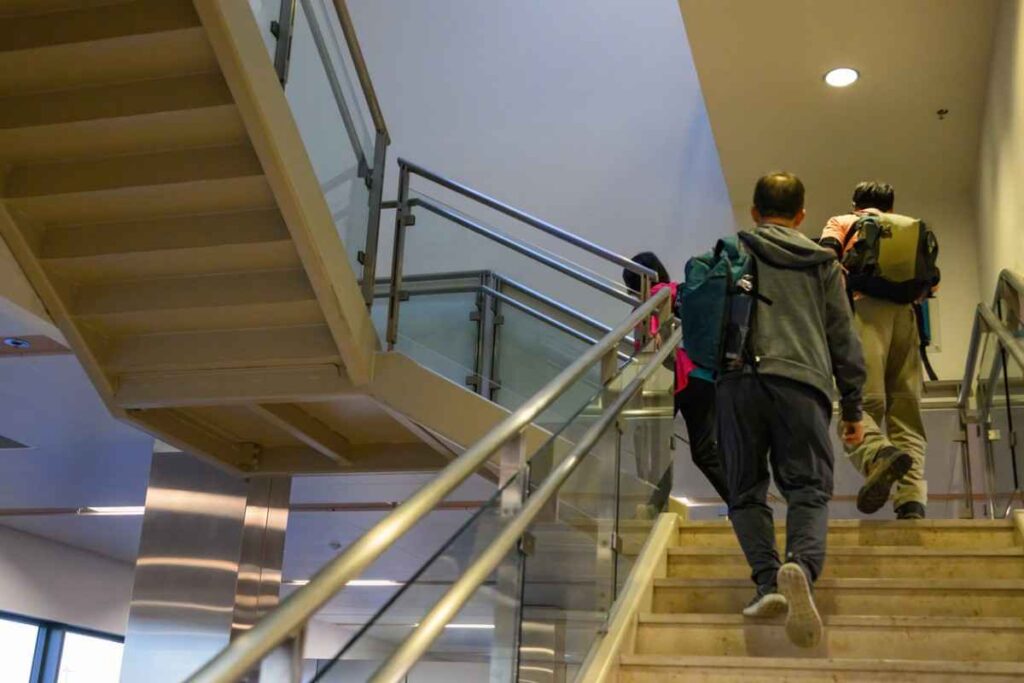Posted on Friday, August 8th, 2025 at 8:25 am
High-rise buildings are a familiar part of the Chicago skyline. From apartment complexes and office towers to hotels and parking structures, these buildings rely on functioning elevators and well-maintained stairwells to keep people moving safely. But when those systems fail, the consequences can be severe. Falls, entrapments, and mechanical failures can result in broken bones, head injuries, or even long-term disability.
At Wallace Miller, we represent individuals who were injured in high-rise buildings due to unsafe conditions involving elevators or stairwells. Whether the building is residential, commercial, or open to the public, property owners have a legal duty to ensure these areas are safe. When they fail in that duty, we help clients hold them accountable.

How liability works in elevator and stairwell injury claims
In Illinois, property owners and managers must maintain reasonably safe conditions for people who are legally on the premises. This includes regular inspection and maintenance of elevators and stairwells. If an injury occurs due to a hazardous condition that the owner knew about or should have known about, they may be liable under premises liability law.
Elevator and stairwell claims often fall under the legal theory of negligence. That means showing the building owner, management company, or maintenance contractor failed to take reasonable steps to prevent harm. In some cases, liability may also involve product manufacturers if a defective part or design flaw contributed to the incident.
Examples of situations that may lead to liability include:
- An elevator that suddenly drops or jerks due to poor maintenance.
- A stairwell with broken steps, missing handrails, or poor lighting.
- An elevator door that closes too quickly or does not reopen properly.
- Stairwells used for storage or blocked by debris, creating trip hazards.
- Failure to perform safety inspections as required by city or state regulations.
At Wallace Miller, we examine all possible causes and responsible parties to build a strong compensation case.
The role of building codes and inspections in Chicago
Chicago has strict building codes designed to protect public safety. These codes set standards for the construction, maintenance, and inspection of elevators and stairwells in high-rise buildings. For example, elevators in buildings open to the public must be inspected annually by licensed professionals. If building owners fail to comply with these regulations, they may be held accountable for resulting injuries.
Records of missed inspections, code violations, or repair requests can be key evidence in a premises liability claim. Our attorneys are experienced in uncovering these details through legal discovery and working with engineering experts when needed.
If a building owner cut corners on safety, failed to act on known issues, or violated Chicago building codes, those actions can significantly strengthen a liability case.
Who can be held responsible after a stairwell or elevator injury?
Determining who is liable in these cases often requires a detailed review of the building’s ownership structure, management contracts, and maintenance records. In some high-rise buildings, the property is owned by one entity but managed by another. In others, maintenance responsibilities are contracted out to third parties.
Depending on the facts of your case, liability could fall on:
- The property owner.
- The building management company.
- An elevator maintenance company.
- A stairwell cleaning or inspection contractor.
- A construction company or an engineer responsible for recent renovations.
- The manufacturer or installer of a faulty elevator system.
Identifying the proper defendants is essential to recovering full compensation. At Wallace Miller, our legal team works with investigators and industry experts to establish fault and pursue all available sources of liability.
What to do if you were hurt in a Chicago high-rise building
If you suffered an injury in an elevator or stairwell, your safety and health come first. Once you’ve received medical care, take steps to document what happened and protect your legal rights.
Here’s what to do:
- Report the injury to building management or security.
- Request a written incident report.
- Take photos of the location and any hazards, if possible.
- Get contact information for any witnesses.
- Keep all medical records, bills, and documentation of missed work.
- Avoid discussing the incident with the building’s insurance company without a lawyer.
These details help preserve critical evidence and establish a timeline of events. Wallace Miller can step in quickly to begin investigating and securing additional proof before it disappears.
Speak with our Chicago premises liability lawyers today
High-rise buildings are part of everyday life in Chicago, but they must be safe for residents, employees, and visitors. If you were hurt because a property owner failed to maintain a stairwell or elevator, you may be entitled to compensation for your medical bills, lost income, and more.
At Wallace Miller, we take these cases seriously. Our Chicago-based attorneys understand the legal responsibilities of property owners and the specific safety standards that apply to high-rise structures. Call 312-261-6193 or begin your free case evaluation online today to discuss your situation and how we can help.
